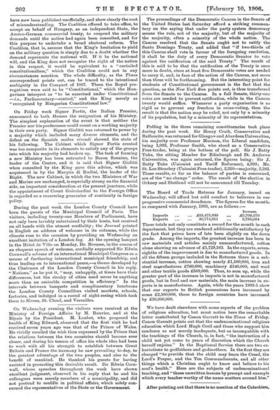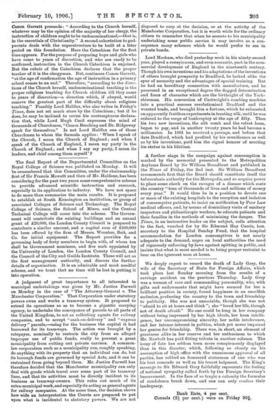After pointing out that there is no mention of the
Catechism,
Canon Garratt proceeds " According to the Church herself, whatever may be the opinion of the majority of her clergy, the instruction of children ought to be undenominational,—that is, in the essentials of Christianity." A second exhortation to god- parents deals with the superstructure to be built at a later period on this foundation. Here the Catechism for the first time appears. For the purpose of preparing boys and girls who have come to years of discretion, and who are ready to be confirmed, instruction in the Church Catechism is enjoined. But the rubric of the Catechism declares that the proper teacher of it is the clergyman. But, continues Canon Garratt, "at the age of confirmation the age of instruction in a primary school comes to an end." Therefore, "according to the direc- tions of the Church herself, undenominational teaching is the proper religions teaching for Church children till they come to years of discretion—a direction which, if obeyed, would remove the greatest part of the difficulty about religious teaching." Possibly Lord Halifax, who also writes in Friday's Times, does not set much store by the Catechism ; but if he does, he may be inclined to revise his contemptuous declara- tion that, while Lord Hugh Cecil expresses the mind of thousands of Churchmen, "Canon Beeching and Dr. Ridgeway speak for themselves." Is not Lord Halifax one of those Churchmen to whom the formula applies : When I speak of the Church, I mean the Church of England ; and when I speak of the Church of England, I mean my party in the Church of England ; and when I say my party, I mean its leaders, and chief among them myself' P











































 Previous page
Previous page